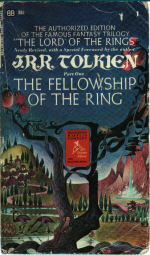What’s Up With SOPA?
![]() The tech blogosphere is abuzz with discussion of yesterday’s House Judiciary Committee hearing on SOPA, the Stop Online Piracy Act, H.R. 3261. (Mainstream news sites seem not to have noticed; the New York Times website front page mentioned the impending sale of Yahoo, but not SOPA.) A good deal of that discussion refers to SOPA in apocalyptic terms: the bill would allegedly “break the Internet,” or “end the Internet as we know it,” or drive YouTube and Facebook out of business if enacted. Even non-lawyer relatives are asking me about it.
The tech blogosphere is abuzz with discussion of yesterday’s House Judiciary Committee hearing on SOPA, the Stop Online Piracy Act, H.R. 3261. (Mainstream news sites seem not to have noticed; the New York Times website front page mentioned the impending sale of Yahoo, but not SOPA.) A good deal of that discussion refers to SOPA in apocalyptic terms: the bill would allegedly “break the Internet,” or “end the Internet as we know it,” or drive YouTube and Facebook out of business if enacted. Even non-lawyer relatives are asking me about it.
Does the bill really do all that? No. Copyright-related debates have been going on long enough, and at such a fever pitch, that such predictions are pretty much the price of admission now to rally the troops. There’s a pretty good inductive argument that predictions of the imminent death of the Internet or of the content industry are actually a reliable indicator that neither the Internet nor the content industry will die. But that doesn’t mean SOPA’s a good idea. So step one is figuring out what it does.
I’ve sat down and read the bill and there’s some aspects to it I think are misunderstood — perhaps by almost everyone. One of its provisions is much more narrowly targeted, and I think reasonable, than is generally being described. I’m going to break this discussion up into a few posts, and I’ll tackle that one first. A second provision is … deeply odd, in ways I haven’t seen mentioned, and I have serious reservations about it, but it is probably not the Vishnu-like destroyer of worlds it is being portrayed as. Finally, I’ll wrap up with some thoughts on what drives copyright rhetoric and politics generally.

 The Supreme Court heard
The Supreme Court heard